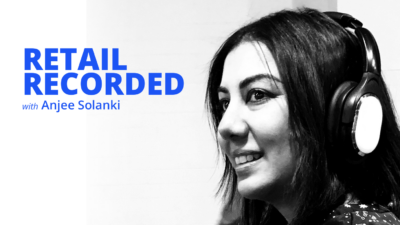“All disruption starts with introspection.”
This concept is especially true for retailers and brands right now. I’ve been carefully observing movements in the industry, and the last few months have proven insightful. The one thing that’s piqued my interest most is the growing idea of conscious consumerism and fast fashion.
Exploring the Conscious Consumerism Landscape
The socially conscious consumer arrived on the scene in 2012 and has played an integral role in the retail and e-commerce ecosystem. Considered agents of change, conscious consumers are the shoppers who weigh in on all aspects of a company and their social, environmental, ecological and, in recent years, political impact on the world, before making a purchase. The bulk of these consumers are the aging millennials and coming-of-age Gen Z, and their numbers are growing. In a recent survey, Unilever discovered that 33 percent of consumers choose to buy from brands they believe have a positive social or environmental impact.
With a laser-focus on sustainability, the younger generation of fashion influencers has a precarious role in the awareness cycle. On the one hand they are drawing attention to and calling out the fashion economy’s unfortunate status as the second most polluting industry on the planet. But they are also unwitting contributors to fashion’s environmental toxicity with their fast-fashion obsession.
Google the term “fast fashion” and the search results produce a cornucopia of positive and negative listings, from retailers who offer quick access to runway trends to articles on fast fashion’s adverse effects —water pollution, textile waste —on the environment. If you dig a little deeper, you will also see how fast fashion is inspiring and empowering niche fashion brands to reinvent the marketplace and how it works in the apparel industry.
A recent call to action by the Ellen MacArthur Foundation that promotes restorative and regenerative design has fast-fashion brands proactively considering how to make their companies more sustainable. In partnership with the Global Fashion Agenda, many are committing to revamp their production process toward a circular model under GFA’s guidance. A circular fashion system refers to the lifecycle of a product where the end product can be upcycled or recycled at the conclusion of its lifespan. H&M, Asos and Adidas have already pledged to the circular model with plans to upcycle up to 60% of all garments collected by 2020.
Let’s Talk About Sustainable Fashion
So how passionate are consumers about sustainability? A good reputation is more valuable than money, but by today’s standards, consumers put their money where their heart is. According to Nielsen, 55 percent of global online consumers (across 60 countries) are willing to pay more for products and services from companies that are committed to positive social and environmental impact.
The first pioneers of the sustainable fashion movement, Patagonia and Esprit, commissioned R&D to unearth the impact of fibers used by their production lines on the environment. In the years that followed, more and more brands joined the movement with a genuine interest in exploring the impact of fashion’s growth trajectory and consumption in the world. The combined activity led to the creation of the Sustainable Apparel Coalition, and its Higg Index, which tracks, measures and ranks the sustainability performance of more than 200 global brands. The movement has spurred continuous support of sustainability practices in pockets throughout an industry that, frankly, still has a long way to go in unraveling the complexities of the global supply chain.
Sustainable Fashion: Innovate or Die
Designers, apparel retailers and fashion brands alike must learn to embrace a new approach to sustainability to meet market demands. A handful of up-and-coming fashion brands are leading the charge, taking the sentiment quite literally.
Here are a few of my favorite brands championing the cause:
- Amour Vert’s apparel is produced using certified organic cotton. Their linen comes chemical-free, their polyester is recycled and they work with Tencel, made from eucalyptus trees, Modal from sustainably harvested beech trees and other sustainable textiles.
- Custom Collaborative, a Harlem-based shop that trains and supports low-income women, especially immigrant women to create and sell high-quality and sustainably sourced made-to-measure clothing.
- Bombas Socks, a brand dedicated to improving the lives of others donates a pair of socks to the homeless for every pair of socks purchased.
- Protest tee shirts are everywhere these days, with social messaging that makes a statement and inspired fashion designs from the likes of Christian Sirano and Jonathan Simkhai, who donate all the proceeds from their protest tee shirt designs to charity.
- Ninety Percent, a newly launched London-based womenswear brand, has pledged to donate 90% of distributed profits to a selection of charitable causes.
The brands that innovate around sustainable fashion and become increasingly bold about how they approach the space and the marketplace are ones to watch. Do you have a favorite brand that supports sustainable fashion? Tweet them to @AnjeeSolankiCRE …
Anjee continues to be an insatiable enthusiast of all things retail. She’s a student of culture with a pulse on future shoppers and the fleeting trends constantly changing the retail landscape … driving retailers, landlords and developers crazy!

 Anjee Solanki
Anjee Solanki
 Aaron Jodka
Aaron Jodka Nicole Larson
Nicole Larson
